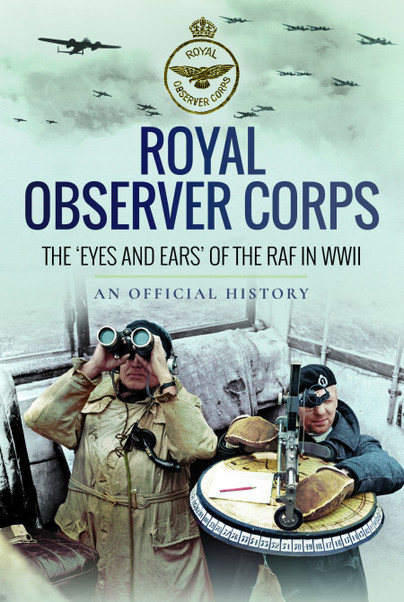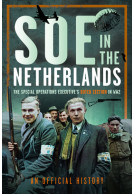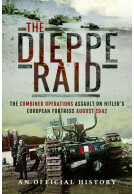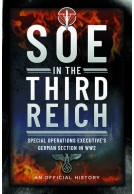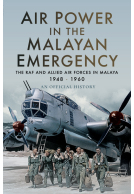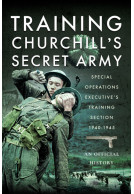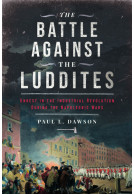Royal Observer Corps (Paperback)
The ‘Eyes and Ears’ of the RAF in WWII
(click here for international delivery rates)
Order within the next 2 hours, 2 minutes to get your order processed the next working day!
Need a currency converter? Check XE.com for live rates
| Other formats available | Price |
|---|---|
| Royal Observer Corps Hardback Add to Basket | £15.99 |
| Royal Observer Corps ePub (2.2 MB) Add to Basket | £6.99 |
The key roles played by the Royal Observer Corps in the Second World War have, all too often, been overshadowed by more glamourous arms of the defence forces. The teams in the Sector Stations, plotting the battles raging above, and the Spitfires and Hurricanes swooping upon the formations of enemy fighters and bombers, present easily-imagined and dramatic scenes. Yet between the radar stations, detecting the German aircraft approaching over the Channel, and the Sector Controls were the little sand-bagged posts of the Observer Corps that provided over-land tracking of the enemy formations.
The Royal Observer Corps (the ‘Royal’ prefix being approved in 1941) proved a vital link in the communication chain in the defence of the UK, particularly in the Battle of Britain, as it provided the only means of tracking enemy aircraft once they had crossed the coastline. The highly-skilled Observers were also able to identify and count the enemy aircraft, turning blips on a screen into actual types and numbers of German machines.
Even after the threat from the Luftwaffe receded after the Battle of Britain and the Blitz, the ROC again came to the fore when the V1s opened a new reign of terror in 1944. Because these small, fast weapons were so hard to detect the RAF’s fighter controllers moved into the ROC’s operations rooms so that they could respond to the V-1 threat more rapidly.
In this official history of the ROC written shortly after the war, the corps’ operations throughout the conflict are set out in great detail. This includes a section on the last flight of Rudolf Hess, as well as one detailing the work of those who were selected for employment as Seaborne Observers on ships during the D-Day landings, where their specialist identification skills were used to prevent the all-too prevalent instances of ‘friendly fire’.
This history provides an account of the ROC which is just as important in understanding the operations of the corps as the Observers were in the defence of the United Kingdom during the Second War.
This Official History is a ‘must read’ for those who are even slightly interested in the Royal Observer Corps. For those who are definitely interested it is an essential read.
Civil Defence Association
The ‘Royal’ prefix was approved in 1941 and the Observer Corps provided a vital link in counting the numbers and types of German aircraft The book outlines the history of the organisation to the end of WWII in eleven chapters and there are ten Comprehensive Appendices to help the reader. (ROC Headquarters at Bentley Priory eventually stood down on 31st March 1996) It tells the story from origins in 1914-15 until 12th May 1945. By this time the strength of the Royal Observer Corps was over 32,000 and some 1400 Posts kept all the sky in Great Britain under observation.
Members of the Corps were highly skilled and of particular interest they were successfully installed for Operation Overlord on merchant ships. They identified aircraft with the idea of anti aircraft firing solely on German aircraft, not our own.
The importance and relevance of the Royal Observer Corps becomes evident on reading the book and it will grace any bookshelf.
As featured in
RAF News
A good history of these vital volunteers.
Bulletin of the Military Historical Society
Reproducing the text of an unpublished report held in the National Archives at Kew (File AIR 41/11), a detailed history of the evolution, organization and operations of the Royal Observer Corps (ROC) and in particular the key role it played in identifying and tracking approaching German enemy aircraft during the Second World War. The book complements the earlier ROC histories by T. E. Winslow Forewarned is Forearmed (William Hodge and Company Limited. 1948) and Derek Wood Attack Warning Red (Macdonald and Jane's Publishers Limited. 1976).
Royal Aeronautical Society
About An Official History
An official account prepared for the War Office at the end of the Second World War.







